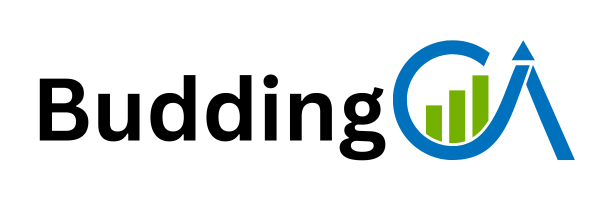The banking sector in India is a prominent career choice for graduates and professionals who seek stability, growth, and exposure to the dynamic world of finance. With the rapid expansion of financial products and digital innovations, banks are constantly looking for young talent, especially Chartered Accountant (CA) students and commerce graduates, for industrial training roles. These roles provide practical learning, hands-on experience, and an excellent launchpad for a career in banking.
However, landing an industrial training position in the banking domain is not easy. The competition is tough, and candidates must prepare thoroughly for the interview process. In this guide, we’ll discuss the essential skills, expected interview questions, and preparation strategies that can help you succeed in securing an industrial training role in a bank.
Why Choose Industrial Training in Banking?
Industrial training in the banking sector offers a unique opportunity to gain first-hand exposure to core banking operations, financial management, customer handling, and regulatory compliance. Trainees get to work with experienced bankers and deal with real-time scenarios in areas like loan processing, investment, risk management, and digital banking. This not only strengthens one’s resume but also helps in understanding how theory translates into practice.
Such experience is highly valued by recruiters, both in the banking industry and in other finance-related sectors. It also gives you an edge while appearing for further professional exams and interviews.
Key Skills Required for Banking Industrial Trainees
Before appearing for interviews, candidates should understand the critical skills expected by banks from industrial trainees:
Financial Acumen
- A strong understanding of financial principles and banking products.
- Knowledge of concepts like interest rates, lending, credit evaluation, and basic accounting.
Attention to Detail
- Ability to manage large volumes of data and transactions accurately.
- Precision is vital in compliance, documentation, and reporting.
Research and Analytical Skills
- Capability to research banking regulations, market trends, and new products.
- Ability to interpret data and make recommendations.
Communication Skills
- Good verbal and written communication for dealing with customers and reporting.
- Listening skills for understanding customer needs and solving problems.
Adaptability and Learning Attitude
- Willingness to learn new banking software and adapt to changing work environments.
- Open-mindedness towards new banking trends like digital banking and fintech.
Interview Preparation: Important Areas
To crack interviews for industrial training roles in the banking sector, candidates should prepare for a variety of questions—from basic banking awareness to scenario-based problem solving.
Let’s break down the most common topics and sample questions:
General Banking Knowledge
Sample Questions:
- What is a bank and what are its functions?
- Explain the difference between commercial and cooperative banks.
- What is the role of the Reserve Bank of India (RBI)?
How to Answer:
A bank is a financial institution that accepts deposits and gives loans. Commercial banks focus on profit and serve the general public, while cooperative banks are owned by members for mutual benefit. RBI regulates and supervises banks, controls monetary policy, and ensures financial stability.
Core Banking Concepts
Sample Questions:
- What are SLR (Statutory Liquidity Ratio) and CRR (Cash Reserve Ratio)?
- What is the repo rate, and how does it affect the banking sector?
- What is a Non-Performing Asset (NPA)?
How to Answer:
SLR is the minimum percentage of deposits that banks must keep in liquid assets. CRR is the portion of deposits that must be kept with RBI. Repo rate is the rate at which RBI lends to banks—an increase makes borrowing costlier, while a reduction increases liquidity. NPA refers to loans where repayments are overdue for more than 90 days.
Loan Processes and Documentation
Sample Questions:
- Describe the steps in processing a loan application.
- What documents are required for granting a loan?
- How do banks assess a customer’s creditworthiness?
How to Answer:
The process includes receiving the application, verifying documents (ID, income proof, collateral), assessing credit score, evaluating repayment ability, sanctioning the loan, and disbursing funds. Creditworthiness is checked using the credit score, debt-to-income ratio, and borrower’s financial history.
Risk Management in Banks
Sample Questions:
- What are the major risks faced by banks?
- How do banks manage credit risk?
How to Answer:
Major risks include credit risk, market risk, operational risk, and liquidity risk. Banks manage credit risk through detailed due diligence, credit scoring, requiring collateral, and diversifying the loan portfolio.
Customer Service and Relationship Management
Sample Questions:
- How would you handle a dissatisfied customer?
- What steps will you take to build long-term relationships with clients?
How to Answer:
Listen to the customer’s grievance, show empathy, resolve the issue promptly, and follow up to ensure satisfaction. For relationship building, offer personalised services, maintain regular contact, and provide value-added solutions.
Current Trends in Banking
Sample Questions:
- How is digital banking changing the industry?
- What is fintech, and how is it impacting traditional banks?
How to Answer:
Digital banking allows transactions through mobile apps, ATMs, and online platforms, increasing convenience and efficiency. Fintech refers to technology-driven financial solutions like digital wallets and peer-to-peer lending, which push banks to innovate and improve customer experience.
Scenario and Behavioural Questions
Sample Questions:
- Tell us about a time when you worked under pressure.
- Describe a situation where you had to explain a financial concept to a layperson.
How to Answer:
Use the STAR method (Situation, Task, Action, Result) to structure answers. Explain what happened, what you were supposed to do, what steps you took, and what the outcome was.
Additional Banking Interview Questions to Prepare
- What is a credit score and why is it important?
- What is a mortgage? Explain with an example.
- What are SWIFT codes used for?
- What is investment banking?
- Explain the difference between debit and credit cards.
- What are different types of bank accounts?
- What is overdraft protection?
- What are fixed deposits and their types?
- What is a home equity loan?
- How does RBI control inflation?
Tips for Performing Well in Banking Interviews
1. Research the Bank: Know about the bank’s products, history, market presence, and recent news.
2. Update Yourself on Banking Trends: Read about recent RBI policies, digital banking trends, and current events.
3. Practise Communication: Prepare short, clear answers for common questions. Practise mock interviews with friends or mentors.
4. Dress Professionally: Formal attire creates a positive impression and reflects seriousness.
5. Carry Required Documents: Keep all certificates, identity proof, and updated resume in order.
6. Prepare Questions for the Interviewer: Show your interest by asking about learning opportunities, work culture, or training processes.
FAQs: Interview Guide for Banking Industrial Training
Q1. What does an industrial trainee do in a bank?
A: An industrial trainee assists with day-to-day banking operations like loan processing, documentation, compliance checks, financial analysis, and customer interaction.
Q2. What are the key skills required?
A: Financial acumen, attention to detail, communication, research skills, and adaptability.
Q3. What is the significance of NPAs in banking?
A: NPAs reduce profitability and limit a bank’s ability to lend further. Managing NPAs is critical for a bank’s financial health.
Q4. Why is digital banking important for today’s banks?
A: Digital banking improves efficiency, reduces costs, and offers better customer service, making banks more competitive.
Q5. How should I prepare for banking interviews?
A: Understand banking fundamentals, prepare for scenario-based and technical questions, and stay updated on industry trends.
Conclusion
The role of an industrial trainee in the banking domain is both challenging and rewarding. It offers an excellent opportunity to apply academic knowledge in real business settings, gain hands-on skills, and lay the foundation for a successful banking career. However, getting selected for such roles requires thorough preparation.
Focus on understanding fundamental and advanced banking concepts, practise mock interviews, and stay current with industry developments. Approach the interview with confidence, clarity, and a genuine desire to learn. By honing your skills and presenting yourself well, you will be well-equipped to excel in the competitive world of banking.
Calling all CA dreamers!
🔴 Are you tired of searching for the perfect articelship or job?
Well, fear no more! With 10K+ students and professionals already on board, you don't want to be left behind. Be a part of the biggest community around! Join the most reliable and fastest-growing community out there! ❤️
And guess what? It’s FREE 🤑
✅ Join our WhatsApp Group (Click Here) and Telegram Channel (Click Here) today for instant updates.




